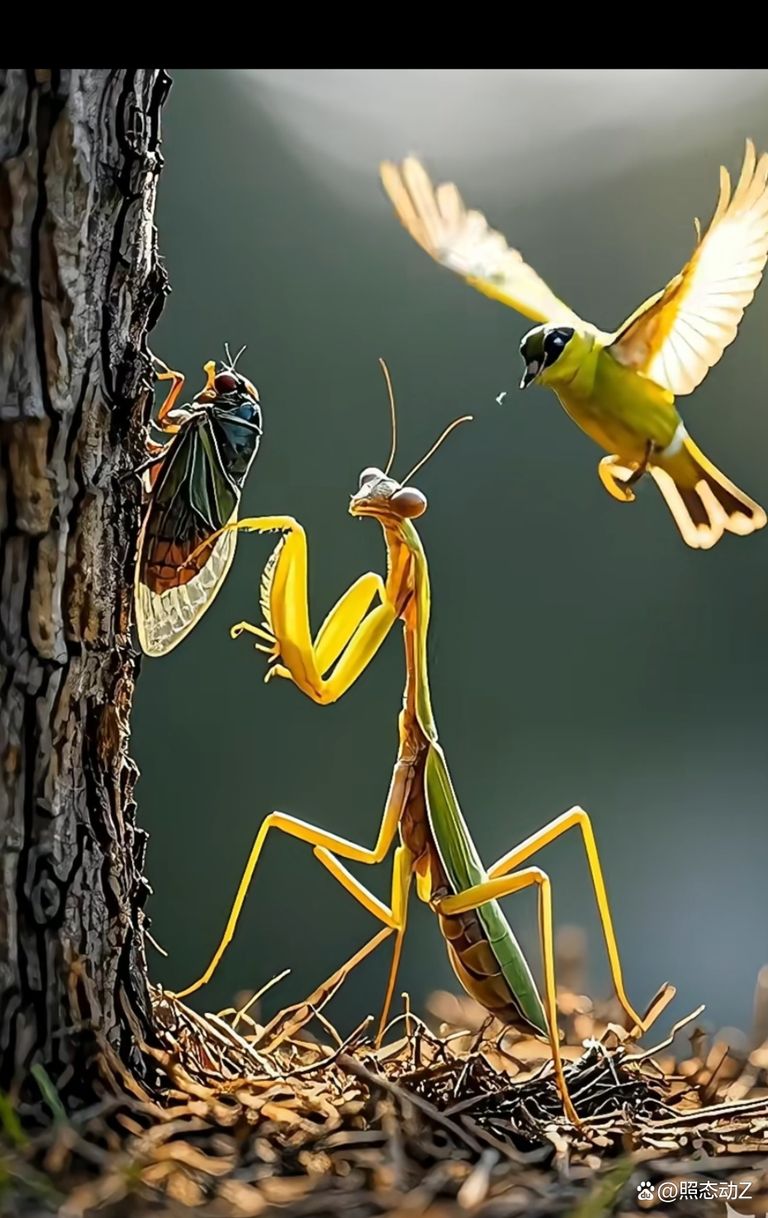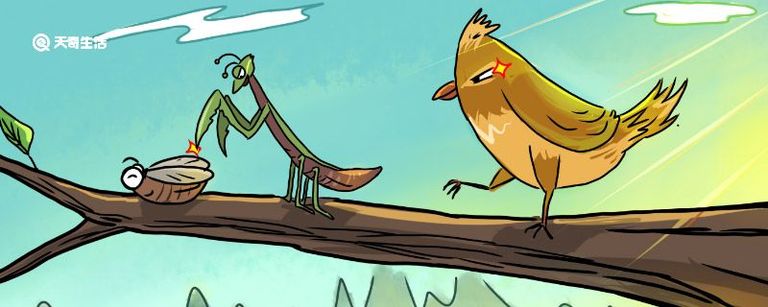
During the Spring and Autumn period, there were frequent conflicts between various feudal states. Once, the King of Wu was preparing to attack the state of Chu. He summoned his courtiers and directly announced his decision to attack the state of Chu. Upon hearing this news, the ministers wanted to raise objections.
When the King of Wu saw someone opposing his army's attack on Chu, he warned his left and right ministers, "If anyone insists on dissuading me, they will be executed!" The ministers looked at each other, but dared not go forward to dissuade him.
At that time, there was a young attendant in the court who wanted to advise, but he spoke lightly due to his lowly position. Without daring to take any action, the attendant accidentally noticed the figure of a cicada on the tree, and he came up with a good idea.
Every morning, this attendant carried a slingshot and bullets in his hand and went to the backyard where the King of Wu often went, wandering around under the trees. After three days of wandering under the tree, the King of Wu also arrived. They saw cicadas on the tree sucking dew, but did not notice a praying mantis behind them trying to catch it. As a result, an oriole was pecking at it beside the mantis, and the attendant was holding a slingshot at the oriole, ready to shoot it. The cicada, mantis, and oriole only see their immediate benefits without considering the hidden dangers behind them! Upon hearing this, the King of Wu understood the intentions of the young attendant and cancelled the plan to attack the state of Chu.
This is a famous proverb in Chinese history: The mantis stalks the cicada, unaware of the oriole behind—covet gains ahead, unaware of danger behind. This allusion reminds us not to take it lightly at all times, not to only focus on immediate benefits and ignore the dangers behind us. Only by observing and analyzing problems from an overall perspective can we draw correct conclusions and find the right methods to solve them.
春秋时期,各诸侯国之间经常进行战争。有一次,吴王准备进攻楚国。他召集群臣,直接宣布了要去攻打楚国的决定。大臣们听到这个消息,就想提出反对。
吴王看到有人要反对自己,出兵攻打楚国,便警告左右大臣道:“倘若有谁执意劝阻我,便处死谁!”,众大臣面面相觑,却是不敢再上前劝阻了。
当时朝堂上有一位年轻的侍从,想要劝谏,却又因位卑言轻。而不敢有什么动作,这个侍从无意中发现了树上蝉的身影,他便想到一个好主意。
每天早晨,这个侍从,便手中拿着弹弓和弹丸,到吴王经常去的后花园,在树底下转来转去。如此三日,他又在树下转悠时,吴王也来了,他们便看到树上的蝉在吸露水,而没有察觉到身后有一只螳螂想要捕捉它,结果黄雀也在螳螂的身边啄食它,而侍从此时也正拿着弹弓对着黄雀,准备弹射它。蝉、螳螂、黄雀都只看到自己眼前的利益,却不考虑自己身后的隐患!吴王听到这里,便明白了青年侍从的用意,便取消了攻打楚国的计划。
这便是我国历史上著名的谚语:螳螂捕蝉,黄雀在后。这个典故告诫我们时刻不能掉以轻心,不能只顾眼前利益而忽视了身后的危险。只有站在全局的高度去观察、分析问题,才能得出正确的结论,找到解决问题的正确方法。
